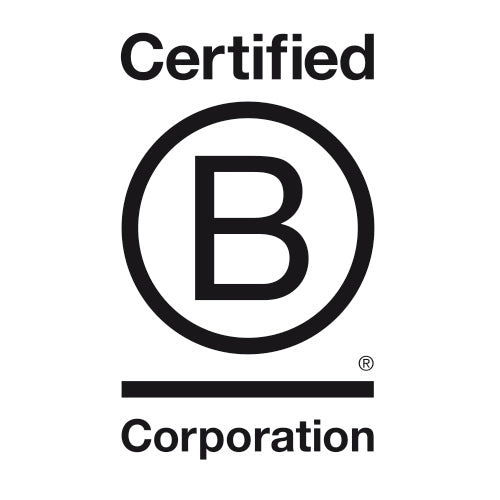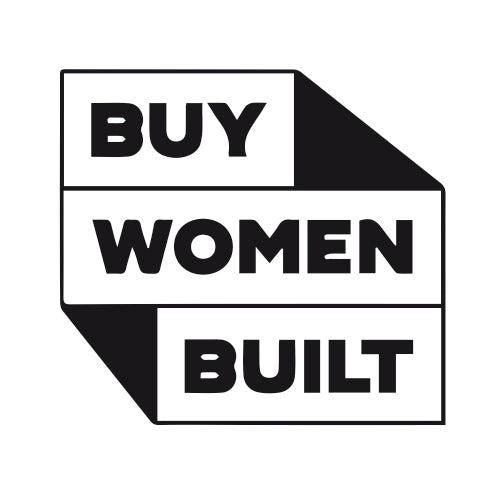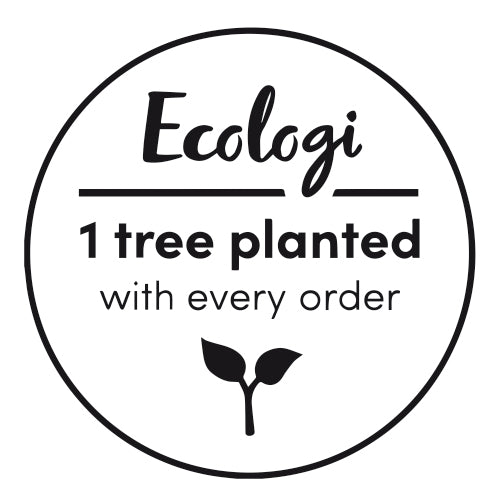Eshita, By Rotation

What piece of advice do you have for other female founders or anyone thinking about starting their own business?
Everyone is passionate about something, but it's really tenacity that sets highly successful entrepreneurs apart. Founding and running a business is a marathon, not a sprint.
What do you do to stay at your best / stay productive? AKA how do you stay sane!
Working out is my escape, I love cardio and yoga. It gives me space and tangible results, often quite immediate.
Cate, BGF
We had the absolute pleasure of speaking to Cate, Head of Talent Network from BGF (Business Growth Fund) an investment company that provides growth capital for small and mid sized business in the UK and Ireland. She has given us some amazing insights into how she came to work for BGF. We hope you find it as interesting as we did!

Could you tell us your background and how you came to be the Head of Talent Network at BGF?
Firstly, thank you for inviting me to do a Q&A with you. This is a fun change. As you know I’m more used to being the one asking the questions!
I studied English at university, had no idea what I wanted to do next, and fell into a job in recruitment – so different from the incredibly clued-up interns and grads we see now! I had a miserable first year of my career in that job, but I learned some hugely valuable lessons and had to toughen up pretty quickly. It taught me that I love understanding business drivers and joining the dots to create high performing teams.
My next move was into a brand-name executive search firm working with some incredible business leaders. That’s where I got my introduction to private equity. From there I joined a private equity firm who were forward thinking in their view that value creation starts with great management teams. I learned loads, developed a broad network of business leaders, and got a real sense of satisfaction from working with businesses for the longer term, not just as a single transaction.
The call from BGF 11 years ago was a career defining moment. I was still pretty unproven and they took a risk on me, but from day one I had the buy-in and support from our CEO and chief investment officer. They shared my view that building a network of board directors to matchmake to our investee companies had the potential to deliver value in a really agile way, while democratising access to the most senior talent. Now, the Talent Network is a team of six, which has helped appoint nearly 400 non-executives to our portfolio. We have developed eight functional leadership pools to share expertise on-demand with our companies. I am joining BGF’s executive committee from January, something that me from 11 years ago would not have believed possible.
Could you tell us a little about BGF and its mission?
BGF is growth capital investment firm, founded in 2011 to boost the UK scale-up economy post-financial crisis. Our mission is to back British and Irish entrepreneurs to scale their businesses, investing equity capital in exchange for a minority share in growing companies. We back entrepreneurs from every corner of the UK and Ireland, across almost all sectors, from early-stage businesses with £1 million in revenues to more established scale-ups turning over £100 million.
Core to our mission is making sure entrepreneurs remain in control of growing their businesses in a sustainable way. We have invested in over 500 businesses so far, with a current portfolio of around 350. We are passionate about helping to create value by leveraging our network and resources to cultivate one of the most exciting peer-to-peer networks of entrepreneurs anywhere in the world.
I do sometimes laugh when I hear myself talking about BGF, because I am so biased! I unashamedly love this business and what we’ve built. It is a huge privilege to work with, and be able to make a difference to, such a wide range of entrepreneurs.
We know you are passionate about supporting female led businesses. In your eyes, why is it that only 1% of investment capital goes to female led businesses?
It’s a big question, and I don’t have a concise answer. For certain, there have been deep seated biases in the investment industry (and most other sectors) that have kept women out. You only have to chat to a handful of women founders to hear how they have been treated differently from male counterparts when pitching to investors. Historic gender disparity within investment teams has played a part, especially for businesses in sectors such as female technology and health & beauty. Mostly male investment teams have not had enough instinctive understanding of the products and market opportunity to confidently back these opportunities.
One of the biggest challenges for us at BGF is a scarcity of supply when it comes to women-led businesses. Because they are not getting as much funding at the earlier stages, they don’t make it to our pipeline in large numbers. As an industry, we need to put more effort into making sure women-led businesses get early funding so they continue to scale. The data that we have suggests gender balanced or women-led businesses generally deliver better value to shareholders.
There do seem to be differences in approach between mostly female and mostly male management teams. Women tend to be more conservative (realistic!) in their projections, and more cautious when setting the amounts they want to raise from investors. This can mean that good businesses get eclipsed by seemingly more ambitious, mostly male-led teams when it comes to fundraising. There is work to do on both sides here – giving women more confidence when raising funds, and educating investors not to assume every founder’s forecasts are over-optimistic.”
What is BGF doing to change this?
We started at home, as it were, doing everything we can to achieve diversity throughout our business, and specifically our investment team. We evolved our recruitment processes to reach a more diverse candidate pool. Currently, around a quarter of our investment team are women, and a third of our executive committee. It takes time to bring this talent through the firm and we focus a lot on culture, engagement and inclusion. We were a founding participant in the Diversity VC Standard accreditation, which put us under scrutiny across how we build our own firm, how we approach investments and how we work with our portfolio companies. This really helped us understand what was working well and what we needed more focus.
We collaborate with a range of partners from across our industry to spotlight the issue. For example, we’re signatories to the Investing in Women code, sharing data on our investment activity to track progress across the industry and swap ideas on how to unlock future investment. We’re participants in FundHerNorth and take part in the Women in Angel Investing Taskforce led by the UK Business Angels Association. We also work with our shareholder bank NatWest and the team on the Rose Review council. These are not just talking shops, they are shining a light on systemic issues and have pushed investment firms, banks and advisors to take action.
Most importantly, we have a proactive origination strategy to engage with women-led businesses. We run events and create local cohorts to connect the incredible women we’ve backed with the exciting women founders we want to support in future. Something magic happens when you bring together women on a mission. I always leave those events feeling electric. It’s working for us, too. We started the events programme two years ago and we’ve now invested in six of the businesses that attended. Dozens more are in our pipeline.
What advice would you have for women starting their own businesses?
I’m not great at giving generic advice, I like to ask lots of questions and make it really specific; but I will give it a go by borrowing the “Three Things” concept from the All Together Collective (very clever, impressive and lovely people, well worth looking up):
Spend time early on developing a really clear sense of your ambition for the business, and for yourself. There are no wrong answers. Getting clarity on what you want is the key to understanding how much risk you’re willing to take. It will also inform your plan for shaping the business, seeking investment and developing a team.
Get a team around you as soon as possible. Perhaps that’s finding a co-founder who complements your skills, or perhaps seed or angel investors with experience and connections. As the business develops, a part-time or consulting finance director is a great investment.
Don’t be shy. Approach people directly for advice. Put yourself out there. A supportive ecosystem for women entrepreneurs has emerged in the last five years and the groundswell is building. You will find people who want to help you.
What advice would you have for women looking for investment from a firm such as BGF?
Ask the investor the questions or topics they are likely to cover ahead of the meeting so you know what to expect. Study the firm’s website and what they’ve published. Most firms publish a lot of content about their positioning, approach and what they look for. Also, see if you can connect with entrepreneurs who have been through a funding round to get their perspective.
Be prepared, and be concise. Practise your elevator pitch and know your supporting evidence. If finance is not your strong suit, it is worth investing in a consultant to help build or assess your financial model.
Most importantly, be yourself. It sounds cliché, but investors are looking for authentic founders to back, not an imaginary ‘perfect’ founder who can do everything.
Anna, UpCircle
If theres two things we love at S&S HQ, its skincare and coffee. So we're extremely excited to feature Anna, co-founder of UpCircle, the cruelty-free, ethical skincare brand repurposing coffee grounds that would otherwise be thrown away. Anna gives us some insight into her motivation in business, her best advice and biggest achievements so far.

What gave you the drive to start the brand?
My name is Anna and I am the co-founder of UpCircle Beauty, which I launched alongside my brother William in 2016 when I was only 22! In 2019 we launched our products into more than 2000 retail doors and expanded into America. Brand founders tend to wear a lot of hats, but I would loosely describe my role within the brand as “The Story-Teller”. I came from fairly corporate background, but was left feeling ultimately unfulfilled. I wanted to start a business with a purpose beyond profit and to create products I could be proud of.
The idea for our brand came about when we discovered that even small coffee shops were producing so much coffee waste per day that they had to pay the council to have it removed and disposed of on landfill sites. Throughout my teenage years I wanted to be a makeup artist so always had a keen interest in beauty and skincare. I knew that coffee had loads of great skincare benefits, so… lightbulb moment! Why not repurpose the coffee into sustainable circular skincare products?
What advice would you give to want-to-be entrepreneurs?
Ironically, to not feel obliged to take onboard everyone’s advice. No one knows your business, your personality or your life like you do, so trust your instinct. There’s no harm in listening, but you don’t have to take everyone’s advice and run with it!
I have come to believe that absorbing as much advice as possible at the start was in fact distracting, and only served to water down my ideas through fear of offending or minimising my audience. I now think you risk being pulled in too many different directions at once if you take on too many opinions. We underwent a rebrand two years into our brand journey to undo all the advice we received from people we thought knew better than us. Turns out they didn’t! Instead, be bold, have conviction and don’t be afraid to be the first to do something. The very existence of my brand, given the brand mission and model, is a demonstration of taking the lead with regards to sustainability within our industry. We’re the only brand to scale up repurposing ingredients into skincare formulations. The pioneering nature of what we do is illustrated by the extent of the opposition to our idea at the start, mentors and investors alike told us that the industry was not ready, that tackling issues of waste in the “shallow” beauty industry would not work. Our rapid growth has proven that not only is it possible, it’s in fact extremely popular. We hope our success will inspire the industry as a whole to become less wasteful - without compromising on quality or style.
What’s your biggest business achievement so far?
It’s so hard to choose one! Having 3 dragons fighting over us on Dragons’ Den was certainly a high! When I won a live pitching event to Sainsbury’s buyers which led to our range being launched in their stores nationwide…that was pretty amazing too. Growing our team is also something that excites me greatly and I take great pride in overseeing the growth of each member of Team UpCircle. With each new hire we have a new wave of excitement, passion and personality. Being a good manager is one of my greatest strengths in my working life.

Happy Women's Equality Day!
Wow! What incredible insights and advice from some truly inspirational women in business. We are so passionate about supporting female entrepreneurs and doing all we can to share our own experiences to help guide others. Thank you so much to Eshita, Cate and Anna for featuring in our blog and doing all you do to inspire the next wave of women in business. Happy Women's Equality Day!
Men Called Dave...
"In the UK there are more funds run by men called Dave than there are funds run by all women. Meanwhile, just 975,000 women opened Stocks & Shares Isas in the most recent tax year, compared with 1.25 million men. Men also typically have more savings into their Isas, at an average of £29,448 compared with £25,836 for women."
Source: Morning star
We wish we were surprised but sadly we're not. We want to change this narrative and encourage more women to feel confident and comfortable enough to run their own businesses or become investors themselves. Together we can close the gender gap. After all, it won't be our knickers that change the world, but the women who wear them.
Want to become an investor? Click here.














